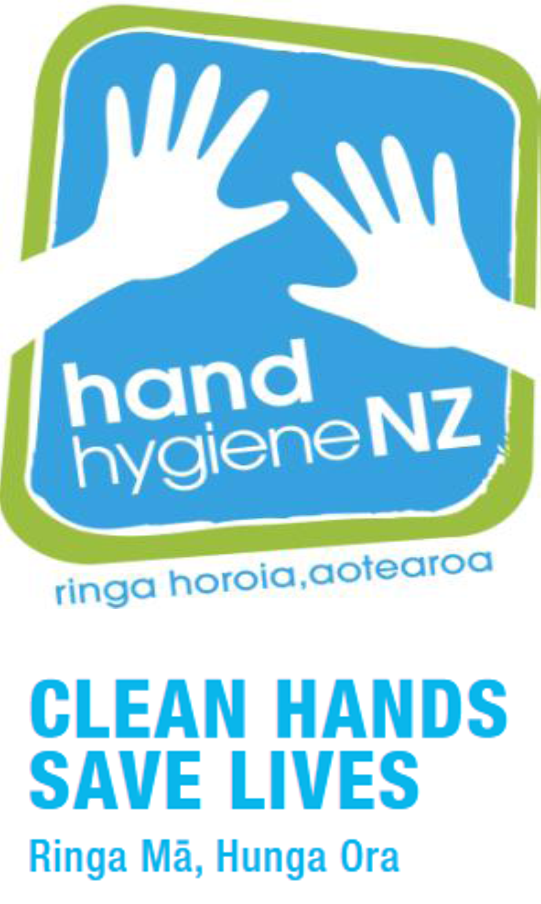Te Whatu Ora Student Placement Information
What to expect on day one
Infection prevention and control
 Washing your hands keeps you and the patients safe. Perform hand hygiene:
Washing your hands keeps you and the patients safe. Perform hand hygiene:
- Before and after touching a patient
- Before and after touching something that could be contaminated (linen, a catheter bag, a vomit carton etc.)
- After touching the patient surroundings (furniture, curtains etc.) even when the patient is not touched
- Before putting on gloves and after removing gloves
- Before and after you go on a break
Hand hygiene products include:
- alcohol-based hand rub (hand gel) in dispensers on the walls and at the end of most beds
- soap and water
- chlorhexidine gluconate 2% and 4% soaps
Gloves are usually only worn when you anticipate contact with blood or other body fluids.
- Gloves are not a substitute for hand hygiene – hands must be washed before and after use
- Gloves, if used, must be changed in between patients
- Latex free (blue) gloves are available for patients or staff who require them
Please ensure you know when and how to perform effective hand hygiene prior to working with patients to keep us all safe.
N95 mask fit testing
Isolation precautions
You may notice that there are restrictions on entry to some clinical areas. Please carefully read the signs on the doors and follow instructions or do not enter that area/room. If in doubt, please ask the clinical team for more information.